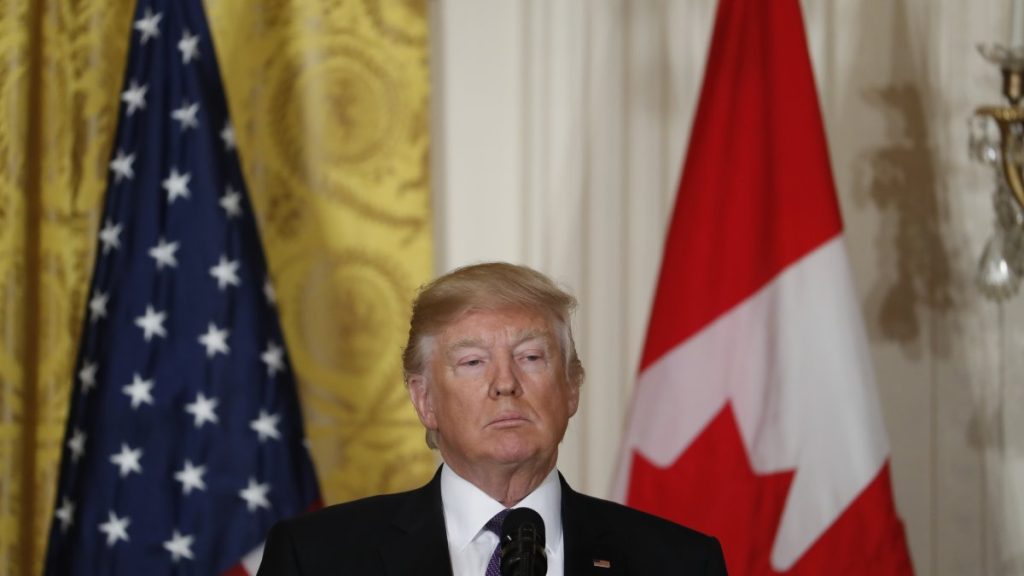When U.S. President-elect Donald Trump expressed his offensive intentions to make Canada the “51st state,” many ignored them as his typical provocations. But his statements have more implications than provocative comments. They highlight a gloomy reality: Colonialism never truly perished. Instead, it has evolved into new forms, quietly lingering and now ironically beginning to target those who were once a colonizer. What is even scarier is that if the international community fails to defend international law and respect for sovereignty, this resurgence of imperial logic could lead to unprecedented global instability.
Colonialism has never disappeared – it has been revamped, with some countries aiming to keep the spirit of exploitation alive through new tools, including economic coercion, spread of disinformation, political intervention and more. Trump’s shocking proposal to unite Canada and the U.S. is more than just a rhetorical charade; it echoes a perspective where power justifies actions, reflecting the very same logic that fueled colonial occupations.
It would be unfair to point to Trump as the only current pioneer of such ideology, as it is not an isolated trend. Take into consideration some countries’ disregard for sovereignty in various parts of the world today, particularly in Gaza, where Israel’s genocidal attacks have claimed over 46,000 Palestinian lives, violating nearly all conventions of international law, amid the deafening silence of the international community. The fact that Israel has not been held to account yet for its grave violations of international law in the Gaza Strip – yet – is concerning.
Trump’s comments targeting Canada – a country renowned for its robust democratic institutions and vast resources – expose the vulnerability of international norms. If even a developed, secure Western country is not immune to such rhetoric, the repercussions for less developed, non-Western nations are discomforting.
Canada’s ironic vulnerability
Canada itself is a paradoxical player in this case. As a country whose foundations are based on colonial expansion and the occupation of Indigenous peoples, it now finds itself dealing with the same invasive rationale it once employed. Trump’s comments highlight the disturbing parallels to Canada’s history of legitimizing land claims through power and dominance. This historical irony raises a hard-hitting question: If power justified actions in the past, what stops the same reasoning from being used against Canada today?
Canada’s strategic position in the Arctic, amid growing Russian and Chinese activity, adds another layer of complexity to the situation. Outgoing Prime Minister Justin Trudeau dismissed Trump’s remarks as a distraction but their broader implications cannot be overlooked. Such statements, no matter how implausible they may appear, underscore the erosion of international norms and the revival of power-driven geopolitics.
Collapsing pillars of international law
Once seen as the main pillar of global stability, international law is considered a relic rather than a legal code, as strong global powers habitually violate these principles without any penalties. The expansion of Israeli occupation of Palestinian lands and China’s militarization of the South China Sea are all testament to the fact that the violations of international law are not isolated incidents: they encourage others to follow suit, leading to a domino effect of disrespect for sovereignty.
Trump’s insolent comments about Canada mirror this trend. They are based on the hypothesis that power and influence can take precedence over the principles of international law if the global community fails to challenge this ideology, the world risks sliding into a chaotic era that might make right.
A collective responsibility
Collective action is vital in the struggle against modern colonialism. It must be recognized that upholding international law cannot be selective or conditional. Countries like Canada, which have historically benefited from these principles, should take the lead by not only confronting their colonial past but also supporting justice and accountability on a global scale.
While some people dismissed Trump’s comments as absurd, we need to remember that words have power: They shape people’s world view, influence strategies and form the basis for actions. This is why it is crucial for the global community to send a clear message in defense of sovereignty and that there is no place for colonialism in the contemporary era.
President Recep Tayyip Erdoğan’s repeated calls for a “fair world” resonates with this idea, as he urges justice and respect for territorial integrity, as well as the restructuring of the global order, particularly the U.N. Security Council, to ensure that no country undermines the sovereignty of others.
The stakes of inaction
Complacency is not an option. Letting colonial logic rise from the grave unchecked will have serious consequences. Canada is in the spotlight today but tomorrow, it could be any nation considered vulnerable or strategically valuable. This rhetoric is not just a rhetorical threat to specific countries but a defiance of the very basis of the international order.
The strong opposition among Canadians to Trump’s suggestion – with 82% rejecting the idea of becoming a part of the U.S. – is a positive sign. Yet sovereignty cannot be protected solely by public opinion.
Building a unified front
Global solidarity is crucial in the path forward, as the global community needs to realize that the struggle against neo-colonialist ideas is a collective responsibility. For Canada, this may mean facing its own colonial history while standing up against external threats. For others, it may mean supporting the struggle to uphold the principles of international law and sovereignty not only when it targets a Western nation but all nations of the world. As Martin Luther King Jr. said, “Injustice anywhere is a threat to justice everywhere.”


